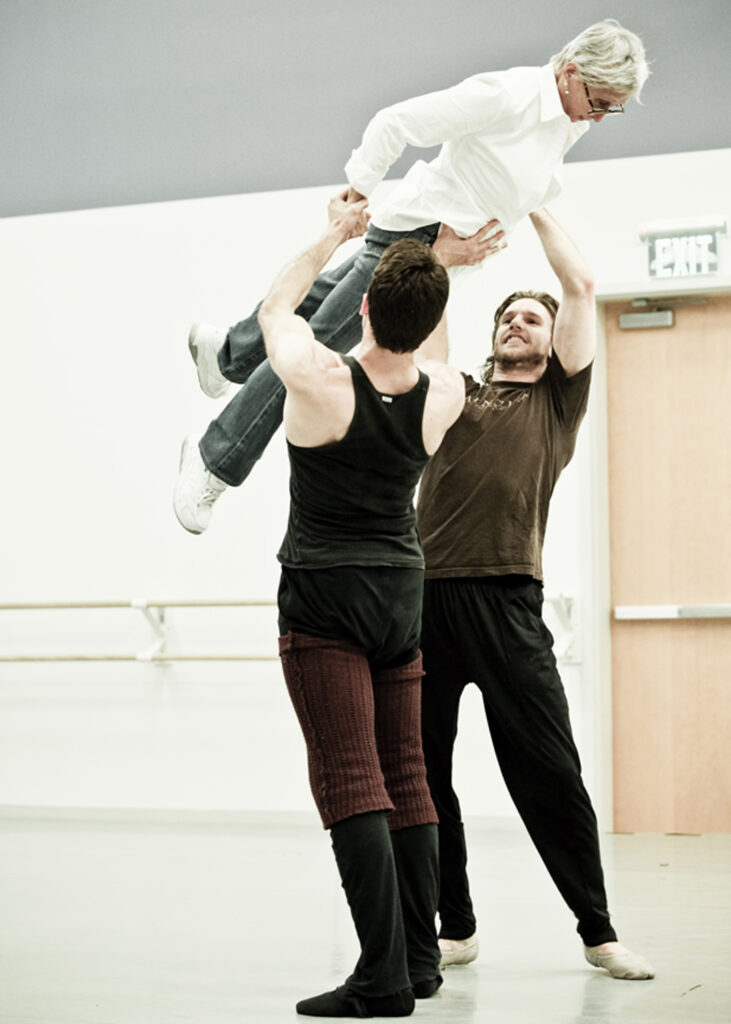“The body doesn’t know itself at the moment.” – Twyla Tharp
Twyla Tharp is someone whose work I clearly should have known well already, given my years in New York, my love of dance, and her prolific output. But thanks to her interview with Terry Gross (of Fresh Air) as well as a recent PBS documentary about her, I’m catching up.
Despite the pandemic, and despite the fact that she’s nearly eighty years old, she’s been busy. One of her projects was choreographing via Zoom. This was not a “dancer in a box” undertaking with each dancer filmed and the piece edited together later. It was live dance over Zoom, complete with time lag, and spanning time zones from California to St. Petersburg.
In the PBS documentary, we get to see Tharp in action and I was captivated by her energy and ability to move in ways that would surely put me in bed with a heating pad.
In her interview, Terry Gross asks what Tharp feels like her body is capable of as she approaches eighty years old. In part, she says that with the last year of pandemic and the disruptions of routine discipline and day-to-day activities, “the body doesn’t know itself at the moment” and that she couldn’t truly say what she could ask it to do until she re-familiarizes herself.
I think for many (if not most) of my colleagues, this feeling of unfamiliarity with the body as it pertains to our profession, and needing some “on-ramp” time is a common sentiment.
No matter the amount of dedication or discipline or practice time one has, it is impossible to fully replicate in the practice room the physical demands of an active performing life. I think there are some things that can be done to help, but there is no replacement for the actual work of rehearsing and performing together. This is true for all musicians, but maybe especially so for brass players.
As some of us start back up again, and as performing arts organizations resume some level of activity, there is so much to navigate in terms of keeping musicians and staff as safe as possible in this pandemic environment, which often means packing more work into smaller periods of time, limiting personnel (like associates, assistants, and subs), and experimenting with fewer (or no) rehearsals. Also, many organizations want to make a statement (understandably) as they re-enter live music making, which might mean playing lesser-known and/or more demanding repertoire. In short, the demand placed on the physicality of musicians is often greater than it was in the Before Times, all while musicians are re-familiarizing themselves with the feel of the stage and playing with others.
I don’t have the answers as to how to balance the needs/desires of organizations and the physical needs of the musicians to safely and sanely re-integrate, but I do think that, even while musicians can and will adapt to a changed work environment, they should advocate for themselves however they can during this process of getting to know the body again in the context of the ensemble and the stage.
In the meantime, I’ve picked up Twyla Tharp’s book Keep It Moving. The chapter entitled “Make Change Your Habit” contains some of my favorite advice from her so far. I’m sure I’ll have more to say about the book later, but in the meantime, I hope those of you lucky enough to start performing again are having a smooth journey back onto the stage!

